This study assessed the status of water, sanitation, and hygiene (WASH) services at (49) selected primary schools in uMfolozi Local Municipality, which is situated in the province of Kwa-Zulu Natal in South Africa.
Data were collected using an observational checklist tool and by conducting a walk-through survey to inspect the conditions of sanitary facilities, observe the hand-washing practices of the school learners, and analyse the accessibility to safe drinking water in school premises.
The data were analysed with the Statistical Package for Social Science Version 29. This study revealed that there is easy access to safe drinking water in all but one school.
The dependability of the water supply seemed to be one of the most urgent problems in every school, even though all of them have some kind of drinking water infrastructure on their grounds. Municipal water (n = 25, 36%) and rainwater (n = 25, 36%) were the most common type of water used in schools compared to borehole (n = 15, 22%) and tanker truck water (n = 4, 6%).
Schools must have a reserved water supply because of the inconsistent supply of municipal water, and because rainwater is a seasonal harvest while borehole water may be affected by factors like load-shedding.
The UNICEF-described ratio of one tap or disperser per fifty learners suggests that the water taps in the schoolyard were insufficient in some schools (n = 25, 36%).
Rainwater is collected through a gutter system in the school building roofs and stored in 5000–10,000 Jojo tanks.
Borehole water is pumped into Jojo tanks at an elevated position where it is stored, and learners receive the water through taps connected to the borehole tanks. During an emergency when there is no water supply from other sources, tanker trucks are hired to fill tanks that are also used to store rainwater.
The borehole and rainwater quality appeared to be clear, but water treatment had not been performed, and the microbial quality was unknown.
This shows that the Sustainable Development Goal (SGD) 6, clean water and sanitation, is still far from being met.
According to national norms and standards for domestic water and sanitation services, people who do not use water treatment or purification techniques fall in the ‘no service’ category and contribute to the water backlog. Pit latrines (n = 46, 94%) and flush toilet (n = 3, 6%) were found to be the only convenient toilet systems used.
The number of toilets is not sufficient according to the guidelines. There are (n = 46, 94%) of the schools in the study area using pit latrine due to insufficient or no water supply.
In 89.8% of primary schools, sanitation facilities are in working condition in terms of repair and hygiene, while 10.2% are not usable in terms of hygiene, and these are mostly boy’s toilets. All schools (n = 46, 94%) that have flush toilets is because they received sponsorship from non-government stakeholders that funded them in achieving piped water systems that permit the functionality of flush toilets.
For the purposes of this study, hygiene was evaluate based on the items found in toilets and handwashing practices.
The hygiene aspects of toilets included tissues, cleanness, and toilet seat. For handwashing practices we looked the number of washing basins, the colour of water, and having soaps to use.
In the schools that did provide handwashing facilities, some of the toilets were broken, there was no water, or there was no drainage system in place to allow them to function. However, according to the school act, the handwash basins should be inside the facilities. A total of (n = 7, 14%) of handwash basins were inside the toilets.
Only (n = 2, 4%) of schools had handwashing facilities which were Jojo tanks with taps near toilets, which were outside of the toilet, with no soap provided. Additionally, (n = 40, 82%) of learners used drinking points for handwashing, which can possibly transmit microbes among them.
The findings revealed that, in general, (n = 32, 64%) of school toilets were clean, while, in general, the girls’ toilets were cleaner than the boys’ toilets. In all the schools, the cleaning services were from the people who were involved in school nutrition.
In conclusion, there were water sources available for access to water inside schools; however, the situation can be improved by increasing the number of water source points.
Pit latrines were the main used toilets, which were in a majority of the schools, and did not have the necessary terms for hygiene such as handwashing basin, tissues, and others.
The lack of the main aspect, i.e., access to water and sanitation items, results in an impact on hygiene to learners as they will fail to practice proper hygiene.
However, improvement can still be made by keeping the boys’ toilets clean while increasing the number of handwashing basins inside the toilets, so that they do not use taps outside the toilets. Schools should work towards meeting the required number of handwashing basins to increase access to handwashing facilities.
https://www.mdpi.com/1660-4601/22/3/360

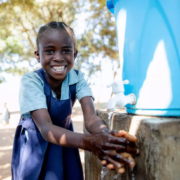 AFWASA
AFWASA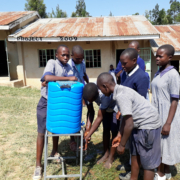 AFWASA
AFWASA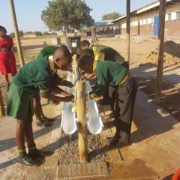 AFWASA
AFWASA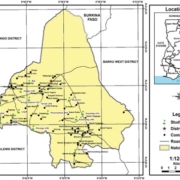 AFWASA
AFWASA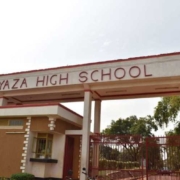 AFWASA
AFWASA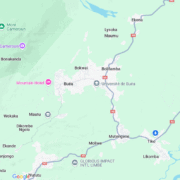 AFWASA
AFWASA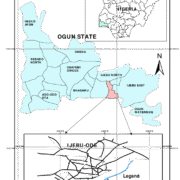 AFWASA
AFWASA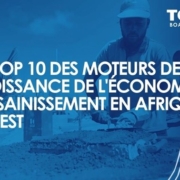 AAEA
AAEA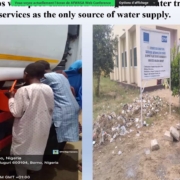 AAEA
AAEA